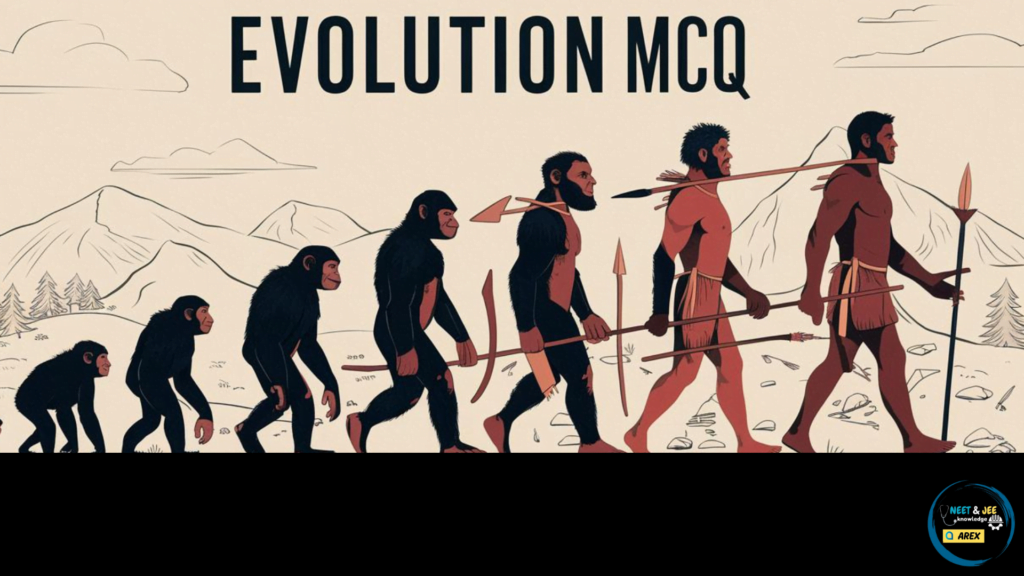
Evolution NEET Questions with Answers
Evolution is the process through which species of organisms change over time through variations in their genetic material. This process, driven by mechanisms such as natural selection, genetic drift and gene flow, leads to the adaptation of species to their environments.
Charles Darwin‘s theory of natural selection, which posits that organisms better adapted to their environments tend to survive and reproduce more successfully. It is a cornerstone of evolutionary biology. Over long periods, these adaptations accumulate, resulting in the emergence of new species and the diversity of life forms seen today.
| NEET 2025 Exam Important Links | |
|---|---|
| NEET 2025 Updated Syllabus | NEET Eligibility Criteria 2025 |
| Biology Preparation | Chemistry NEET Preparation |
| NEET Preparation tips for 2025 | NEET Result 2024 |
Evolution NEET Questions with Answers
In the NEET (National Eligibility cum Entrance Test) syllabus, “Evolution” holds a pivotal role, bridging fundamental concepts in biology with advanced scientific understanding. The topic is important because it underpins much of modern biology, including genetics, ecology and human anatomy.
Evolutionary theory explains the diversity of life through mechanisms such as natural selection, genetic drift and speciation. Understanding these concepts helps students grasp how species adapt to their environments over time, which is fundamental for solving complex problems related to genetics and biodiversity.
Evolution NEET Questions with Answers
Enhance your preparation with Arexiq’s Mock Test Series where we provide solutions to various MCQs like we provide in this post “Evolution NEET Biology MCQ”. Our expert teachers explain the concepts thoroughly, making it easy for you to understand. We offer many types of questions ensuring a clear grasp of concepts.
FAQs about Evolution
- What is evolution?
Answer. Evolution is the process through which species of organisms change over time through variations, mutations and natural selection. It explains how modern organisms have descended from ancient ancestors.
- Who is considered the father of evolutionary theory?
Answer. Charles Darwin is often considered the father of evolutionary theory. His work, especially the book “On the Origin of Species,” laid the foundation for the theory of evolution by natural selection.
- What is natural selection?
Answer. Natural selection is a mechanism of evolution where individuals with traits better suited to their environment have a higher chance of surviving and reproducing. These advantageous traits become more common in the population over generations.
- What are mutations and how do they contribute to evolution?
Answer. Mutations are changes in the DNA sequence of an organism. They can introduce new traits or variations. If these mutations are beneficial, they may be passed on to future generations, contributing to evolutionary change.
- What is genetic drift?
Answer. Genetic drift is the random fluctuation in allele frequencies within a population due to chance events. It is especially significant in small populations and can lead to the loss of genetic diversity.
- How do fossils provide evidence for evolution?
Answer. Fossils show the remains or traces of ancient organisms. By studying fossils, scientists can trace the evolutionary history of organisms and observe how species have changed over time.


